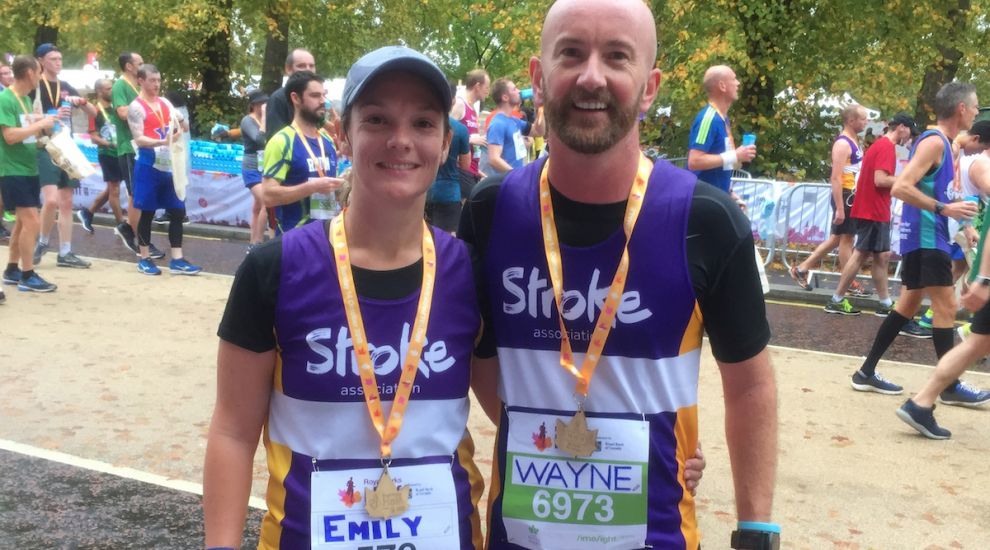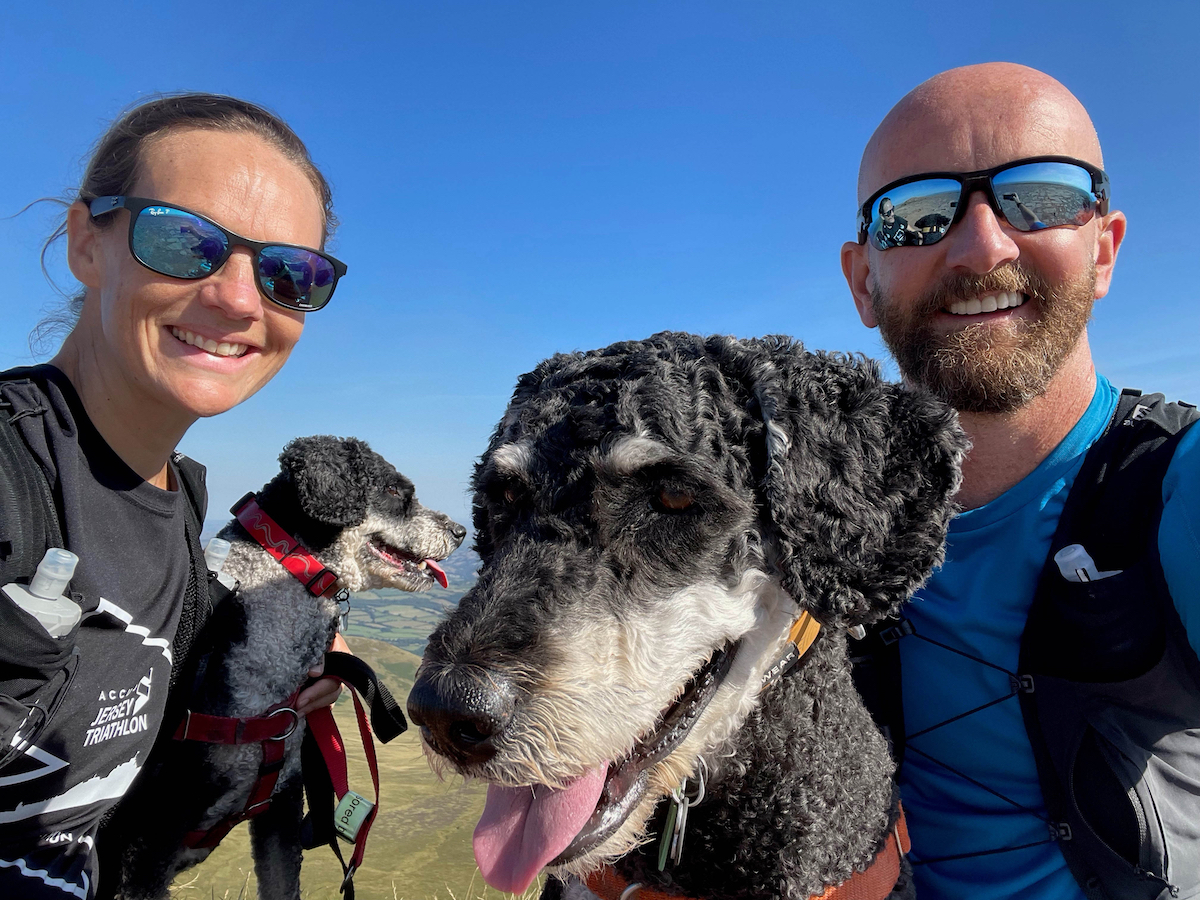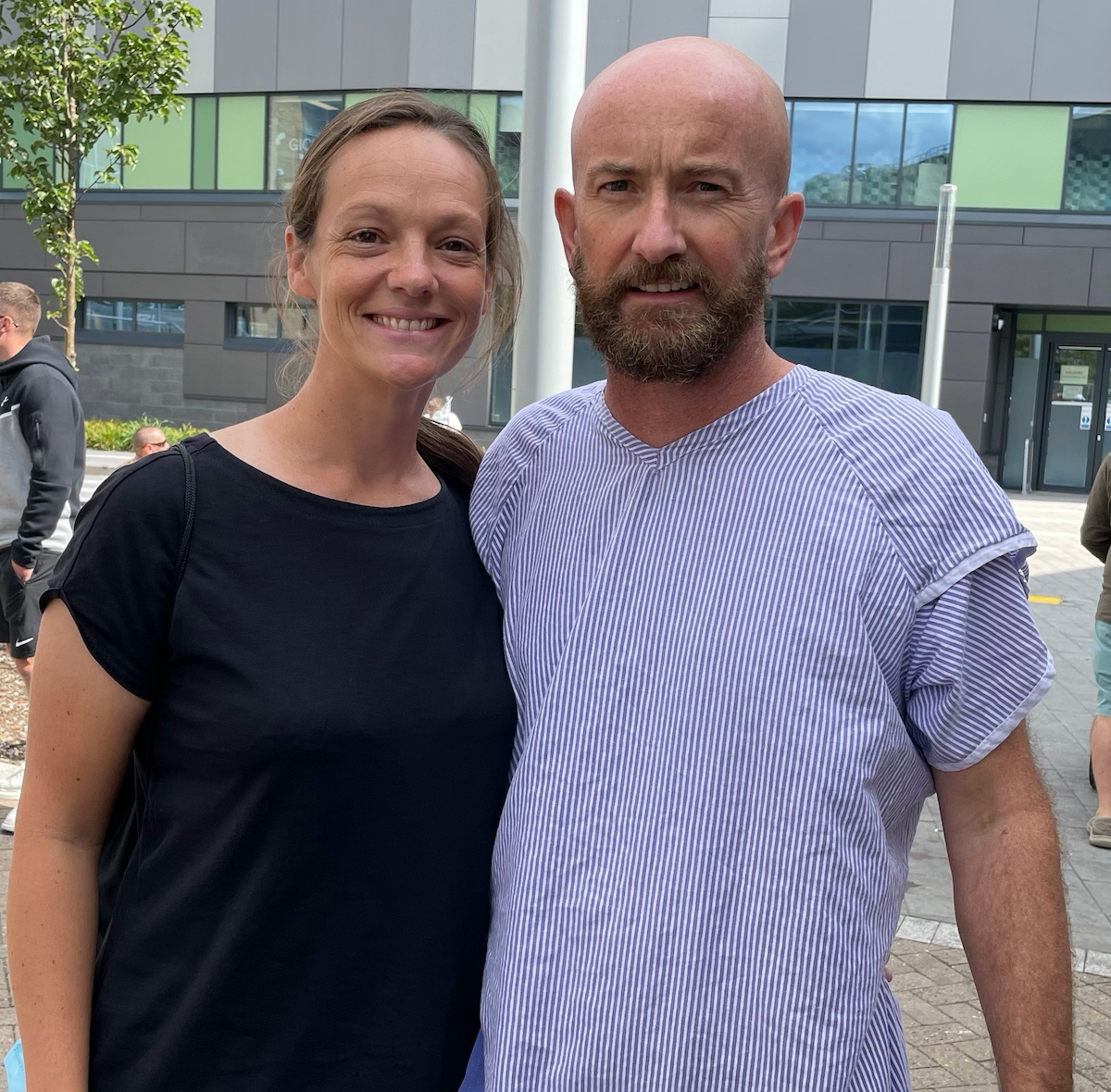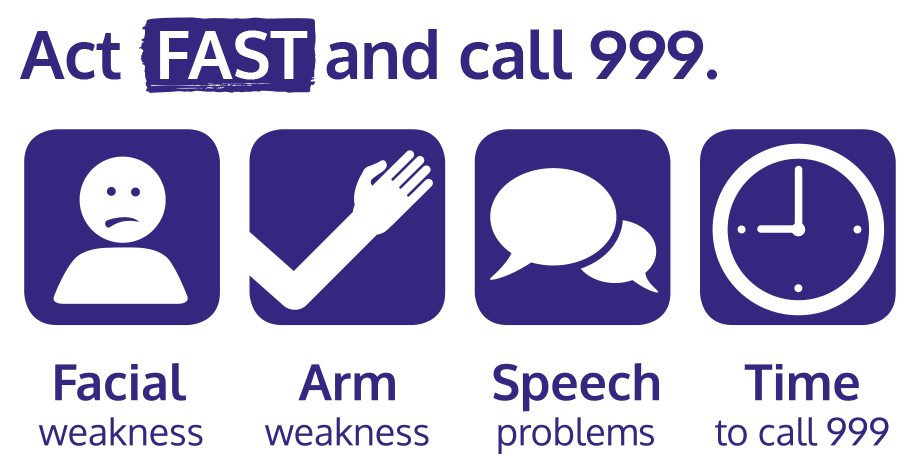


A Jersey runner whose life was saved by his partner after he collapsed during a race is urging islanders to learn how to spot the signs of a stroke.
Wayne English, an Investment Director with Canaccord Genuity, suffered a stroke as he was taking part in the Canaccord Corporate cup 5k run. He was just 46 at the time.
He was immediately helped by other runners, including his partner Emily Le Beuvant. As a result of their rapid response, Wayne received prompt treatment. He is now gradually recovering at the his home in St. Brelade.
Recalling the day he collapsed, Wayne said: “My run started well and I held a good pace, I was feeling good and I was closing in on the finish line. It all suddenly changed. I felt funny, my vision was blurred and I could hear my breathing become heavy and heart pounding."
"I struggled on, darkness imprisoning me. It felt like a curtain dropping over me, like the finale in a West End musical," he continued.
"I held on to a wall with my left hand, my right arm and leg had given up the ghost. I was helped on to the floor and placed on my back. I couldn’t speak.
"Paralysis covered the right of my body. I had no pain. I didn’t know what was happening to me. I was helpless. I was detached from myself, were these things around me real?"

Pictured: Wayne and Emily with their Spanish water dogs Naida and Nixie before his stroke.
Fortunately, Emily, who was running in front, suspected that Wayne had had a stroke as his face had dropped on one side.
“Looking back I had all of the common signs of a stroke – facial weakness, arm weakness and speech problems. Thankfully, I was surrounded by people who called 999 in time."
Emily, a 37-year-old sales assistant at Big Maggy’s bike shop, said: “My head knew as soon as I looked at Wayne that he was having a stroke, but my heart didn’t want to believe it.
"I mean, he’s a fit, healthy 46-year-old. Why would he be?!"
“I knew this was serious," she continued, "I had to step away as I didn’t want Wayne to see how worried I was... I’ve seen enough adverts in my time to recognise that Wayne was having a stroke. His face had dropped on one side, he couldn’t move his arm and he had absolutely no speech."

Pictured: Wayne with Emily outside hospital just a couple of days after his stroke.
Within 30 minutes, Wayne was at Jersey Hospital, and was subsequently airlifted to Southampton Hospital for treatment.
While Wayne has suffered no permanent physical disabilities, he continues to have difficulty speaking - a condition known as aphasia.
He said: "Having no speech initially, my speech and communication has improved in part by my amazing speech therapists. I talked in the past, laughing and joking.
"I’m nowhere near as quick as I was. People will ask me questions and I have no answer, something may be lurking in the deepest black hole but I can’t find it."
The cause of Wayne’s stroke is still being investigated and he has been having tests for a possible hole in the heart.

Pictured: The Stroke Association encourages people to act FAST to recognise the symptom of a stroke.
Wayne and Emily, who have been supported by the Stroke Association’s Jersey Stroke Recovery Service, are now working with the charity to help raise awareness of the signs of stroke.
Wayne said: “It’s vital to know how to spot the signs of a stroke in yourself or someone else.”
Trudi Lewis, the Stroke Association's service delivery and engagement officer in the island, says Wayne’s experience shows how vital it is that people are aware of the signs of stroke.
The key symptoms are summarised in the FAST acronym. That is: Face - can the person smile? Arms - can they raise both arms? Speech - is their speech slurred? Time to call 999 if you spot any of these signs.
Sudden loss of vision or blurred vision in one or both eyes
Sudden weakness or numbness on one side of your body (including in your leg)
Sudden memory loss or confusion
Sudden dizziness, unsteadiness or a sudden fall, especially with any of the other signs
Call 999 immediately if you notice any single one of the signs of stroke
Find more information and support by visiting the Stroke Association's Stroke Recovery Service website here.
You can also make a donation to support the charity's work here.
Comments
Comments on this story express the views of the commentator only, not Bailiwick Publishing. We are unable to guarantee the accuracy of any of those comments.